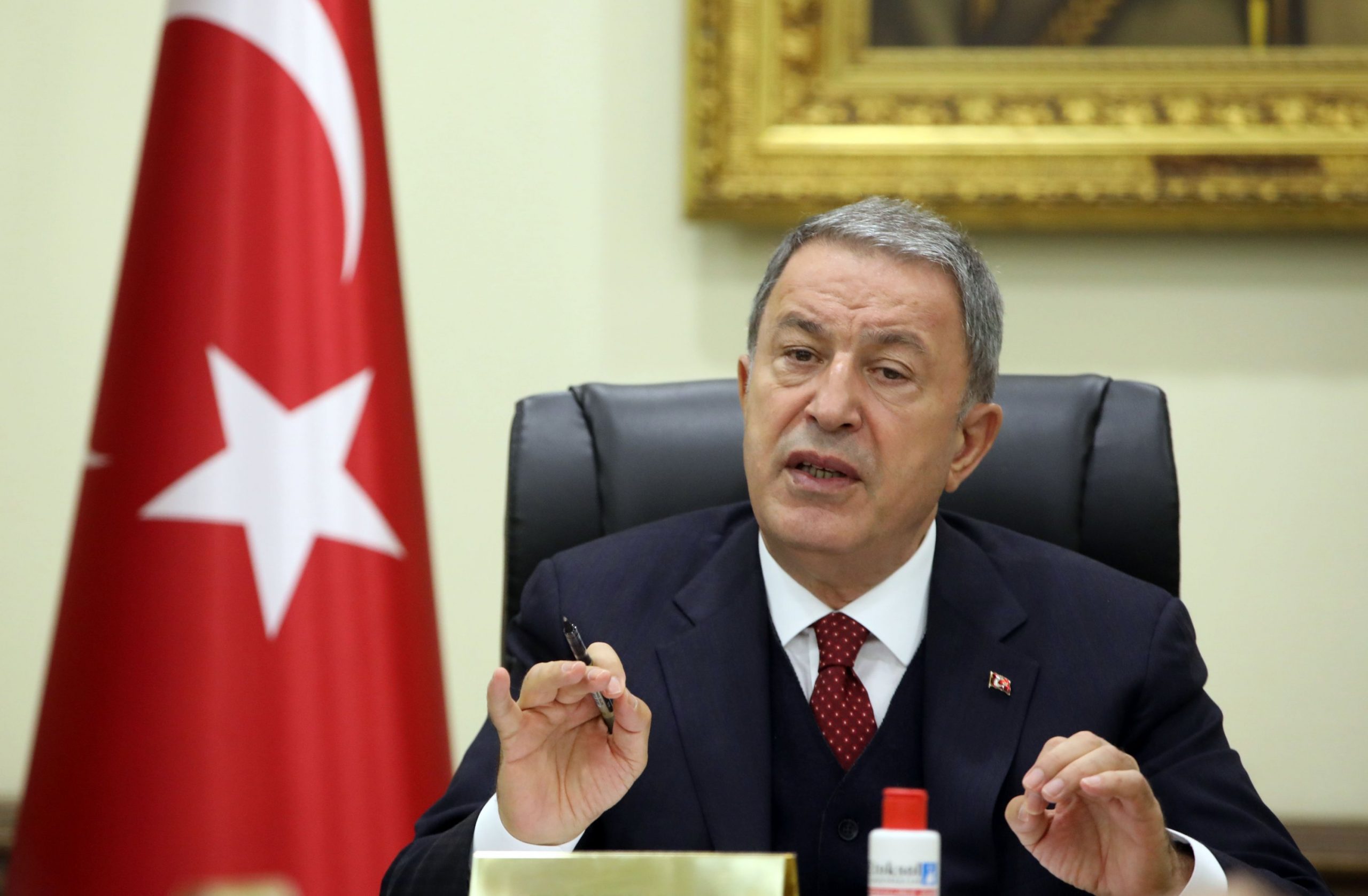Defense Minister Hulusi Akar criticized the United Arab Emirates (UAE) for committing “malicious acts” in Libya and Syria, as he vowed that Turkey will bring Abu Dhabi to account, according to an interview by Al-Jazeera released Thursday.
“The UAE supports terrorist organizations hostile to Turkey with the intention of harming us,” Akar said, adding that the UAE has become a useful political and military tool for other countries.
The UAE is a part of a Saudi-led coalition that launched a devastating air campaign to roll back Houthi territorial gains in 2015, further escalating the crisis in Yemen. In Libya, Abu Dhabi supports putschist Gen. Khalifa Haftar and wants to oust the legitimate U.N.-recognized Government of National Accord (GNA).
Abu Dhabi also supports the Bashar Assad regime in Syria in its offensive against democracy and civil rights, and Turkish officials have accused them of offering financial and logistical support to the PKK terror group to carry out attacks in Turkey.
“If the UAE, Saudi Arabia, Egypt, Russia and France do not stop their support, Haftar will continue to destabilize (Libya),” Akar said. “These countries should prevent Haftar from achieving his goals and solve the problem of Sirte and Jufra.”
Earlier in July, the UAE first falsely declared Turkish Chief of Staff Gen. Yaşar Güler dead and then manipulated the commander’s Wikipedia page by adding the fake death date.
The manipulation began when warplanes, allegedly belong to the UAE, attacking Libya’s al-Watiya air base, which Turkey has the right to use as a permanent base. The attack was followed by a social media operation. First, Sky News Arabia TV channel, which is partly owned by the UAE, falsely claimed that Güler was also killed in the attack. This first lie was followed by a second one as Güler’s Wikipedia page in the English language was also altered to include a fake death date and an allegation that he was killed in Libya.
The recapture of al-Watiya air base by the Libyan Army in May marked a turning point in the conflict that eventually saw an end to putschist Gen. Khalifa Haftar’s 14-month campaign to seize the capital as the latter began to retreat to the new front lines along the coast. Turkish support was vital to the Libyan Army in defeating Haftar’s offensive, thanks to advanced air defenses and drone strikes that targeted rival supply lines and troop buildups. Haftar, on the other hand, has been backed mainly by the UAE, alongside Egypt and Russia. During their advance on Tripoli last year, Haftar’s forces were assisted by air support from Egypt and the UAE. According to the U.N., Haftar’s failed campaign to capture Tripoli set off a humanitarian crisis, with 1 million people in need of aid and almost a half million people internally displaced.
Last Updated on Aug 01, 2020 1:33 pm by Adil Girey Ablyatifov










Discussion about this post